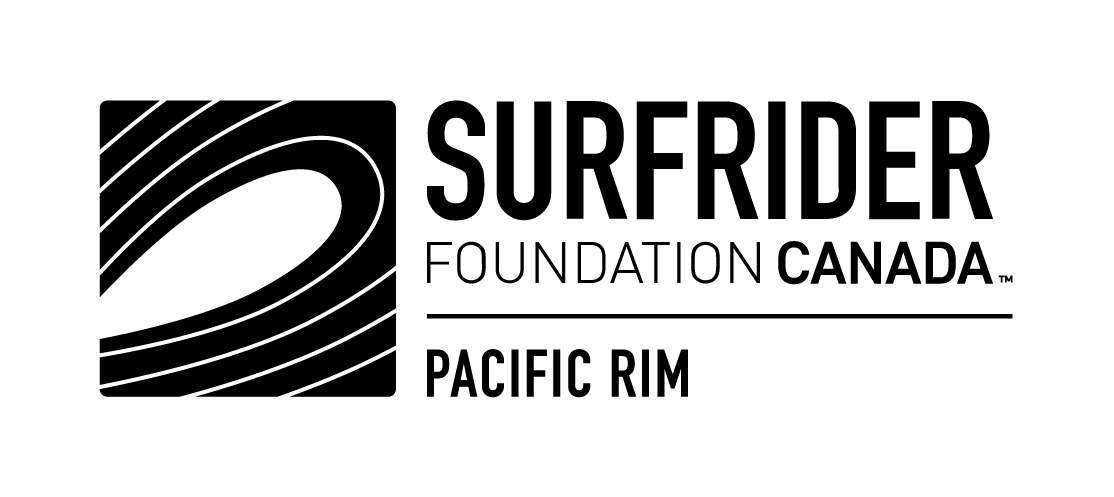Plastic-Free Please
By Katrina Forrest, Surfrider Zero Waste Expert
Last year, Tofino and Ucluelet implemented a ban on plastic bags and straws, so when I walk into businesses on the Pacific Rim I anticipate the most sustainable service. The menus often boast a connection between the establishment, the community, and the land. There is almost always a showcase of locally produced goods, like breads and herbs. I feel so confident when ordering that I am doing something regenerative not only for me, but for the environment and the community. But in a society based on convenience and disposability, I still can’t escape single-use “convenience.”
Now, wherever I am, I ask to have my plate “plastic-free,” despite the awkwardness of this request. Even so, I am often served compostable plastic ramekins, single-use cups for my toddler, and even compostable plastic cutlery. I must commend businesses for adapting to consumer demand by ridding themselves of regular, petroleum plastics and moving towards the compostable kind, but these changes aren’t always the solution they are made out to be.
Here’s why: Compostable plastics which leave behind no toxins, and are different from biodegradable plastics that do create toxins, require air, moisture, and sunlight to break down. Most importantly, they require heat at a level your back-yard compost cannot achieve.
Therein lies the issue: Municipal infrastructure is still often not set up to deal with compostable plastics, and so even when a business is trying to provide better options, the eco-replacements they get cannot be composted or recycled in their community. That means, in many municipalities, there’s unintended trash heading to the landfill where it is unlikely to break down due to the lack of sunlight and air once it’s buried.
This is why, as consumers, it is good to reduce disposable items, but also, we need to help our city officials and our MLA realize the need for a composting facility for Tofino and Ucluelet and environmental policy nation-wide. We, ourselves, need to educate each other on what our municipality accepts in the compost and recycling bins, and we need to continue to encourage businesses to use reusable products whenever possible.
This month at Surfrider we are bringing the next level of sustainable living to the Pacific Rim. We have already gained victories with the “Ban the Bag” and “Straws Suck” campaigns, and now it’s time to tackle other pesky single-use items still finding their way into restaurants and onto our plates. We are asking businesses to voluntarily get rid of their single-use cutlery and foam take-out containers. Once all businesses are signed on, we are petitioning the local districts of Tofino and Ucluelet to include more plastics and polystyrene into their single-use regulations.
Surfrider is offering support to all businesses to move away from plastic cutlery and containers in our two new campaigns: “Forget the Foam” and “Cut the Cutlery.” Already half a dozen Tofino and Ucluelet businesses have made the switch to wooden cutlery. Dozens more have agreed to eliminate single-use plastic cutlery by the end of the campaign date, on World Water Day, March 22nd, 2020. The Surfrider office is also collecting metal utensils to be redistributed to any businesses that are looking for in-house reusable options, as well as a drop off box for any plastic cutlery you may have. To top it all off, we will be giving away reusable cutlery sets through our social media channels, so keep your eyes peeled for an opportunity to win!
Regulation changes are soon expected to come into effect under the national Liberal government, which would apply to the country, but we would like to see our districts become beacons of sustainable business practice ahead of the game. Much like BC led the way for the country’s carbon tax, we would like the Pacific Rim to lead the way to removing single-use plastics. At Surfrider we are beyond bags, straws, bottles, and cups, and know that people are ready for change. Let’s create a community where locals and tourists who live waste-free can enjoy a meal without having to specify a plastic-free plate.
